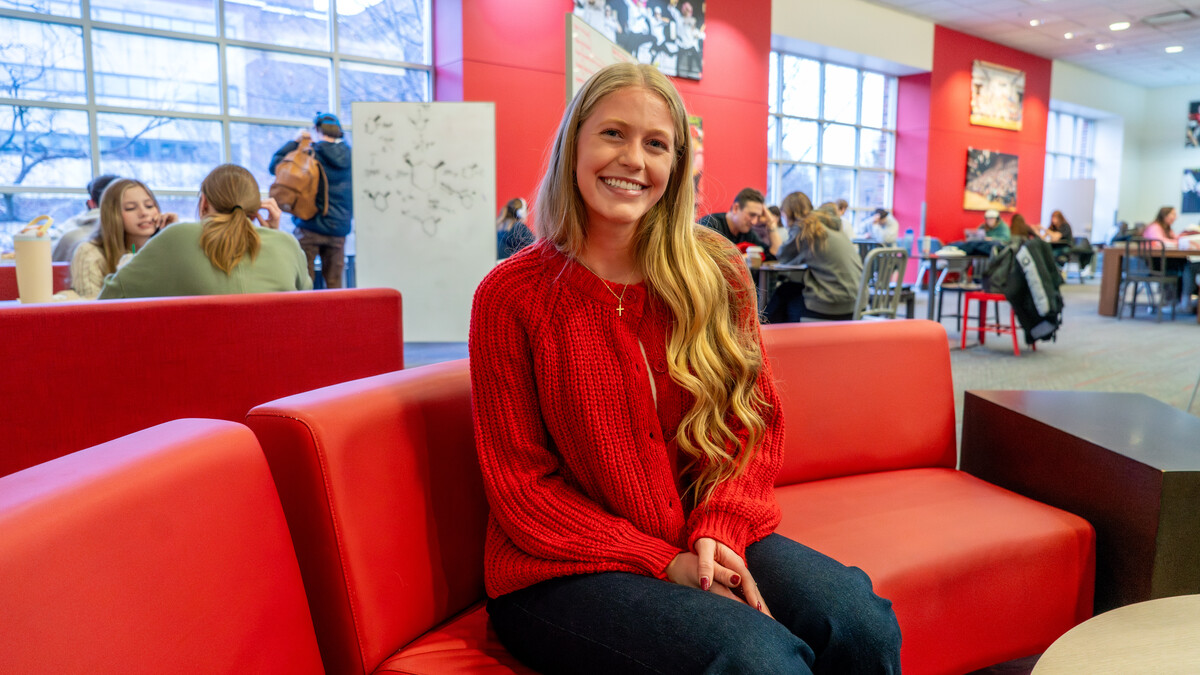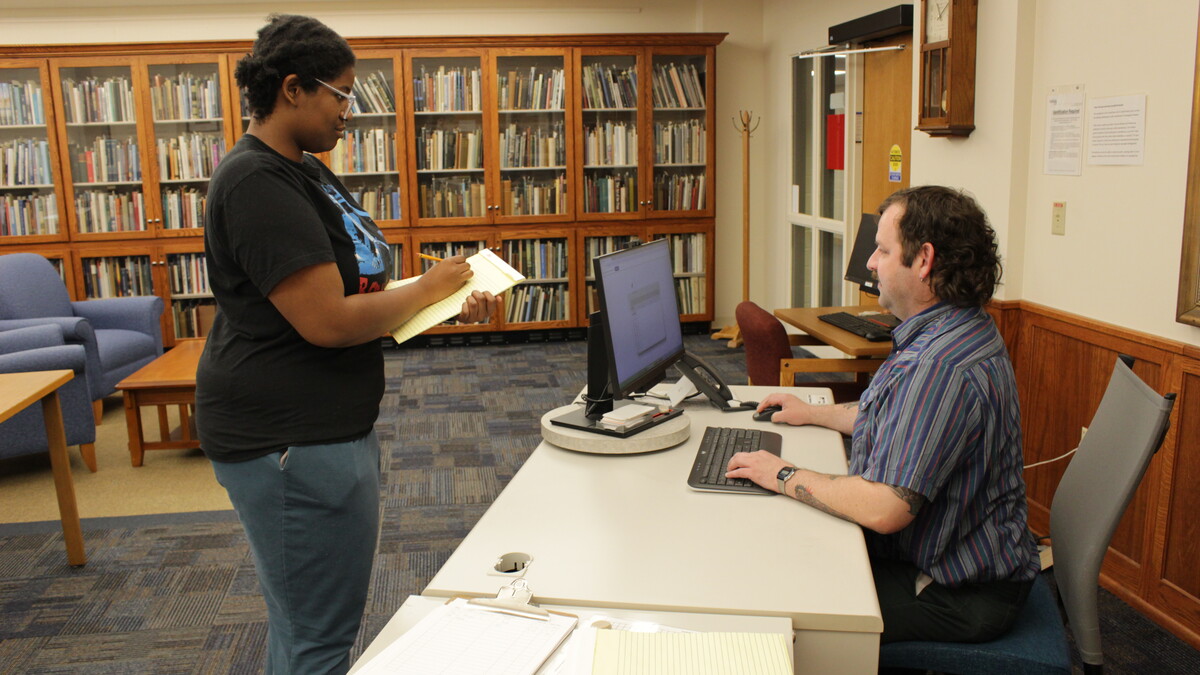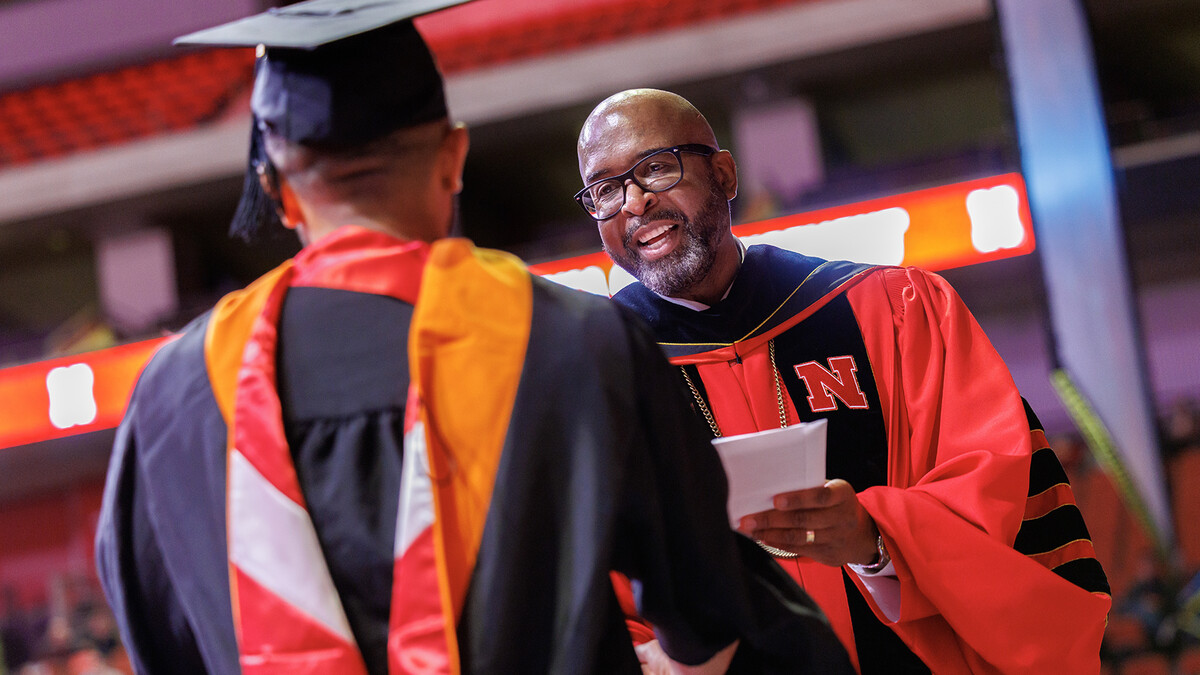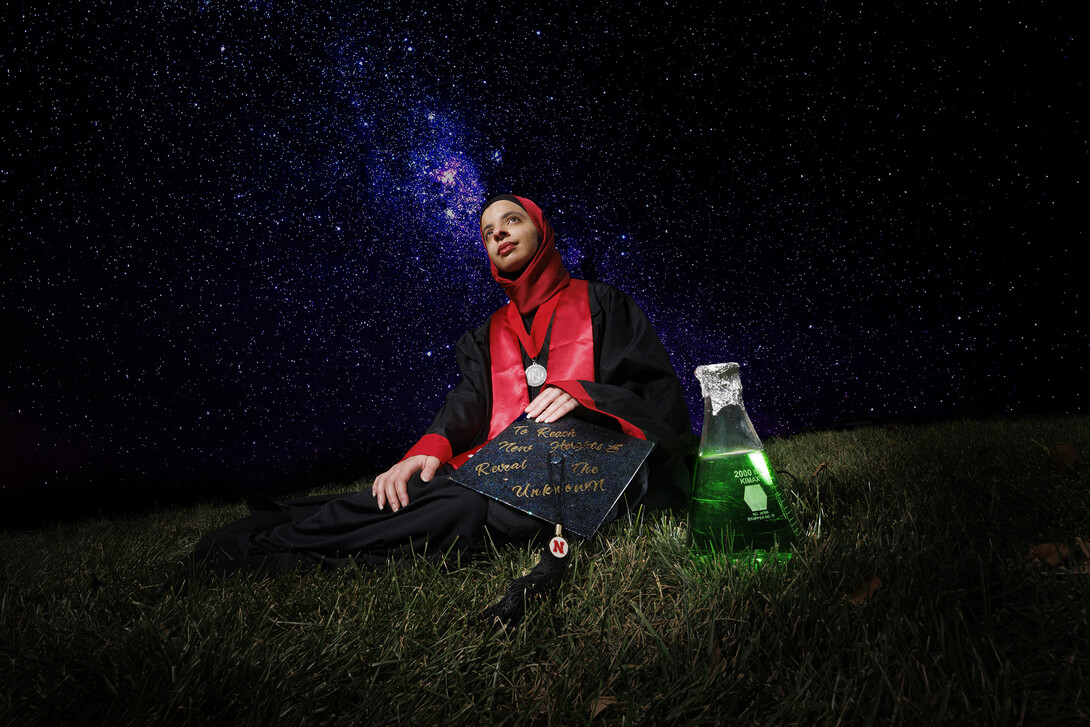
“To reach new heights and reveal the unknown so that what we do and learn will benefit all humankind.”
These words — the vision, or creed, of NASA — hold powerful meaning for Sukaina Al-Hamedi.
They’ve been a guiding light to the graduating senior in biochemistry.
“Perhaps it was the realization that even the most down-to-earth disciplines could still lead me to reach new heights and reveal the unknown, so that what I do and learn will benefit all humankind,” Al-Hamedi wrote in an application for one of several programs she participated in with the National Aeronautics and Space Administration.
During her years at the University of Nebraska–Lincoln, Al-Hamedi completed four NASA-related programs: a career development fellowship, two project-based NASA L’SPACE courses, and a space science education research assistantship.
Following commencement ceremonies Dec. 16, Al-Hamedi will turn her gaze toward the study of chemistry — the building blocks of the world and beyond — in graduate school, with a goal of studying the chemical origins of life.
Born in Lincoln, the path in front Al-Hamedi formed a bit by accident. As a high school student, her love of science solidified, and she thought she’d be a pre-medicine student, eventually completing medical school.
But her first few classes and lab experiences at Nebraska, including UCARE research and work under the mentorship of Amanda Ramer-Tait, Maxcy Professor of Food Science and Technology, opened new possibilities for scientific discovery.
“I actually decided to work in a lab because I was pre-med, and medical schools look at research experience,” Al-Hamedi said. “After seeing that there are so many more aspects to science than what I was exposed to in high school, I took more of an interest in research.”
Al-Hamedi dropped “pre-medicine” from her curriculum vitae and began adding experiences in a new theme — astrobiology.
Al-Hamedi admits that a field that studies the origins, distributions and future of life in the universe sounds a little out there, but she defines it simply as the study of how biology, chemistry and other disciplines work together to study life on Earth and other planets alike.
“A lot of people tend to think of space exploration as an engineering or physics-centric career,” she said, adding that she previously had that perception, too. “But biology and chemistry are also involved in the space sciences.”
An opportunity listed in an email newsletter began to lay out a possible career path for her. It was a call for applications for the Introduction to NASA-Nebraska Space Grant Fellowship. Al-Hamedi took a chance and applied.
“I thought, ‘Why not?’” she said. “It was one of those things, where you must take the opportunities that come to you, even if you don’t think you are qualified, or it doesn’t align with your goal. You just never know what the outcome will be.”
The fellowship was focused mostly on career development, and the 20 students selected met virtually and explored a variety of career possibilities at NASA, culminating in a visit to Kennedy Space Center, where Al-Hamedi was able to meet NASA biologists, chemists and engineers. That exploration cemented her interest in someday working in the space science industry.
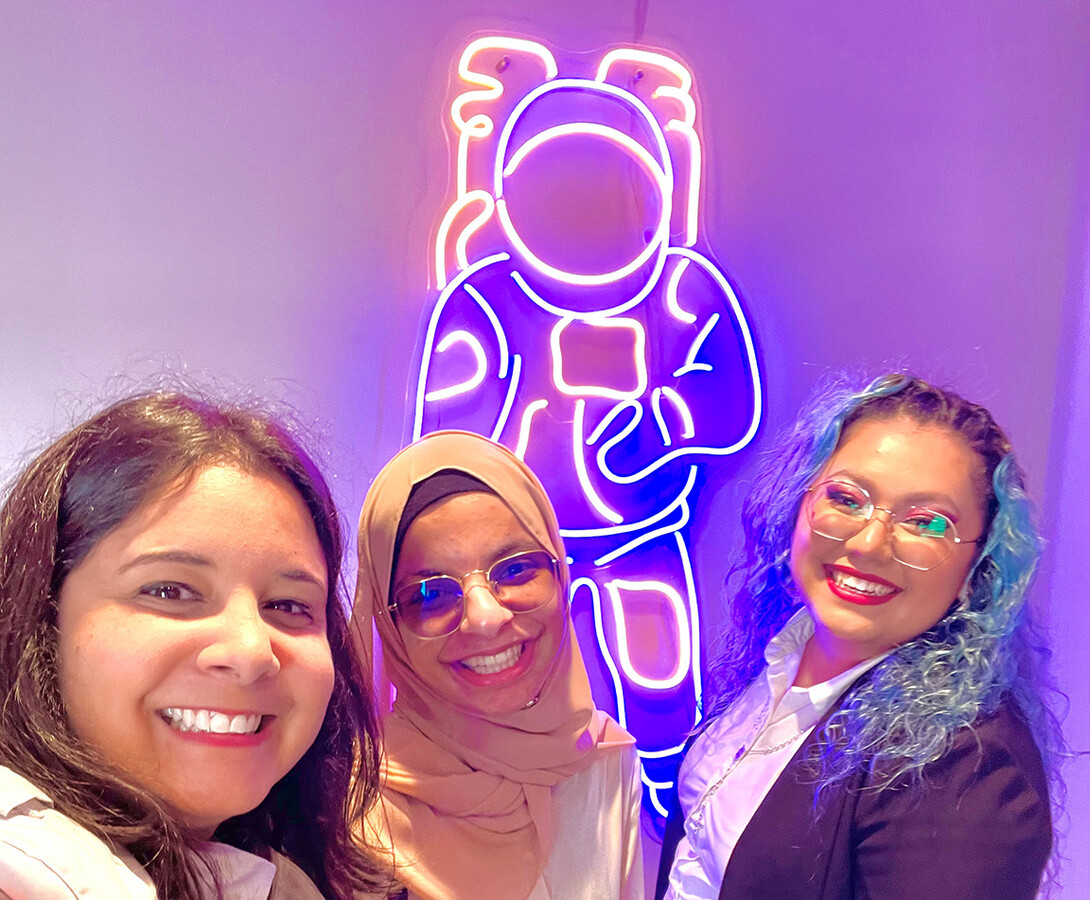
“Biology and chemistry are very intertwined with environmental science,” she said. “A lot of NASA missions involve studying the Earth’s environment, but I also met some people who are working in new studies, for instance, learning how microgravity influences plant growth. There are a lot more possibilities that you don’t realize exist until someone tells you about it.”
Al-Hamedi went on to apply for NASA’s L’SPACE program, or the Lucy Student Pipeline Accelerator and Competency Enabler, and earned a spot in both semesters of 2022. In the L’SPACE program, she worked in multi-disciplinary teams to design a space mission and peer-review grant proposals. The experiences demonstrated how the STEM fields complement each other on NASA missions, and how Al-Hamedi’s research interests aligned.
“Through all of these experiences, I’ve been able to find so many bridges between disciplines that on the surface seem so different from one another,” she said. “I found connections between what I studied, what my peers studied, and how interdisciplinarity propagates innovation.”
She also began working as a teaching assistant in the Department of Physics and Astronomy, while continuing her studies in biochemistry and lab work in Nebraska’s Gnotobiotic Mouse Program.
While counting the successes she’s marked, including graduating with high distinction, when she thinks back over her undergraduate career, the experience that rises to the surface as her favorite is her work with the Office of New Student Enrollment as an International Student Orientation Leader.
“I worked with more than 200 international students. I got to meet so many people, and it was the first thing I did after the COVID shutdown,” she said. “It was a completely new experience.”
She also enjoyed sharing her insights to high school-aged girls as a guest speaker, opportunities that grew out of the NASA fellowship.
“The girls often ask about diversity in STEM, and how to overcome hardships, from imposter syndrome and family/friend relationships to grief and unexpected life events. We also explain that science fields aren’t just one particular thing,” she said. “You think you know about science, but there is so much more to it once you’re immersed in it. We wanted to motivate them to follow their passion for science, and affirm that they can still become successful women despite difficulties.”
As a December grad, Al-Hamedi gets to take a breather while she waits for the flurry of decisions she’ll make this spring regarding graduate school in the fall. She knows she’ll study chemistry, but she also sees a world — no, a universe — of scientific discovery that’s possible.
“That’s the cool thing about chemistry,” she said. “It’s so broad and there are so many things you can do with it, and all are equally interesting to me. I really have found an interest in everything. It’s like our motto in the College of Arts and Sciences, ‘Let curiosity move you,’ so that is what I will do.”
